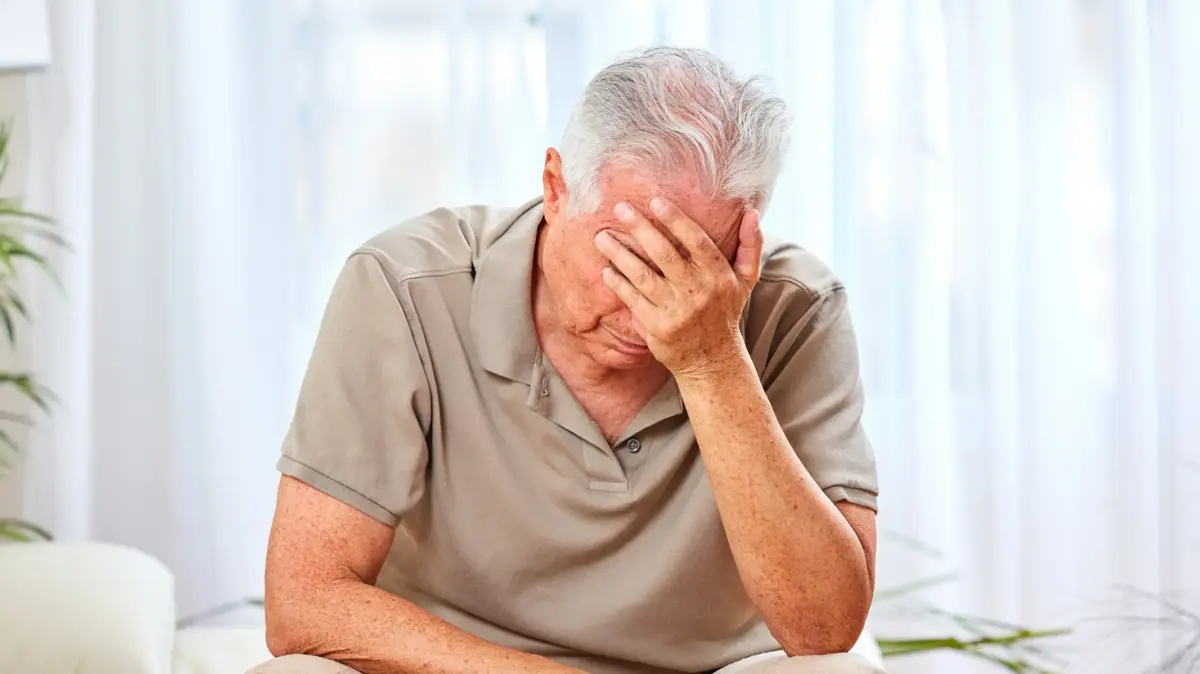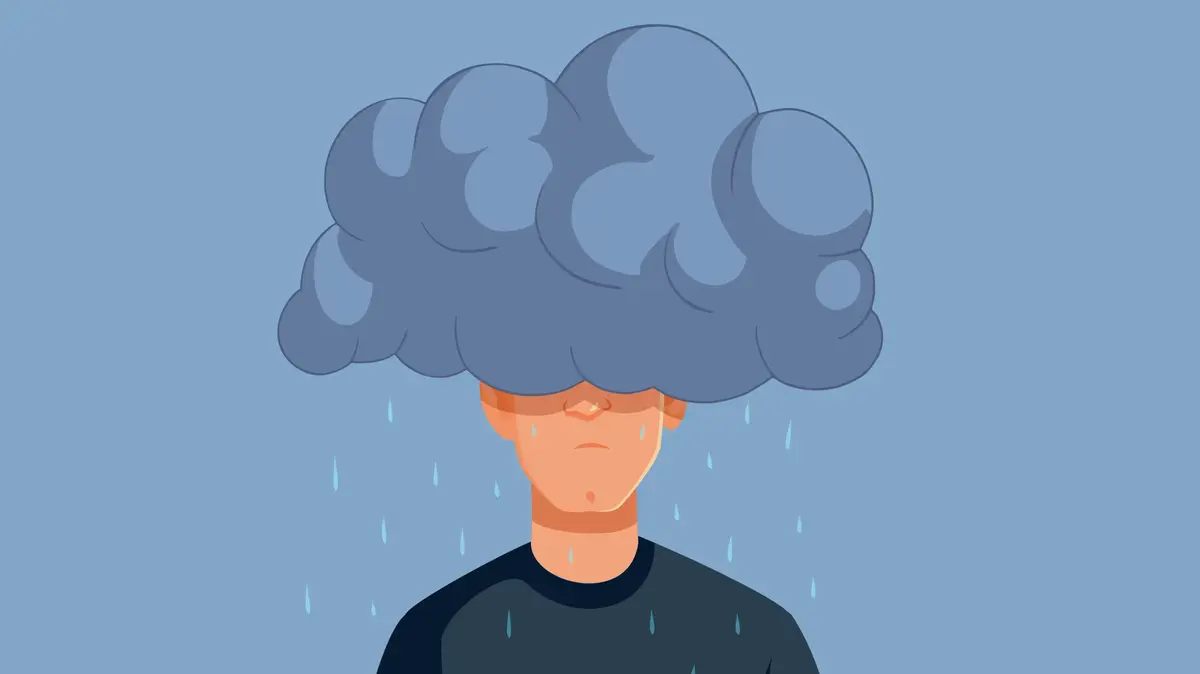How is depression diagnosed and treated in the elderly?
Depression is the most common diagnosis among seniors even though about half of the population in this age group is undiagnosed and not treated properly.
Professor Eli Mizrahi, geriatrician and psychogeriatrician, expands on the widespread and unspoken phenomenon
Prof. Eli Mizrahi, in collaboration with zap doctors
09/09/2021
Thursday, 09 September 2021, 08:02 Updated: Wednesday, 29 December 2021, 08:00
Share on Facebook
Share on WhatsApp
Share on Twitter
Share on Email
Share on general
Comments
Comments
How do we know what is happening to seniors? (Photo: ShutterStock)
Nearly 20% of all people aged 65 and over will suffer from depression at some point in their lives.
According to the definitions of the American Diagnostic Book, DSM, the vast majority of seniors are undiagnosed and do not receive the appropriate treatment for the required time.
The risk that senior women will suffer from depression is higher relative to the male population but at the same time there are other risk factors that can cause depression.
Contact details in urgent cases and consultation at the bottom of the article.
More on the subject
What is the right medicine for the elderly?
In collaboration with zap doctors
Risk factors for depression in the elderly
There are a number of factors that can lead to depression in the elderly:
• Gender - Gender-wise, women are more likely to develop depression than men.
Awareness of decreased function, exacerbation of physical problems and dealing with a new health condition including dealing with a serious illness.
• But, bereavement and especially when a person experiences the loss of a spouse or other relative or friend certainly constitutes an explanation for his or her lack of mood but also sadness resulting from grief can turn into depression.
• Sleep Disorders - A person's mood will change adversely in the absence of adequate sleep. People who have previously slept soundly until the next morning say they can not fall asleep, sleep less and wake up earlier in the morning. If there is no other organic, health problem that can explain the issue of sleep disorders, it may be a bad mood.
• Loneliness and lack of adequate family and social support
• Education - People with low education tend to use medical services less
• Medications - People taking various medications are at high risk of developing depression.
These are usually beta-blockers, various types of antibiotics, steroids, drugs to treat blood lipids and more.
More on the subject
When should a fall worry you?
Clarification of recurring falls
In collaboration with zap doctors
How is depression diagnosed?
The diagnosis process includes an initial questioning - what is the person's mood?
Does he think he has depression?
And how long has he been in a bad mood - if his answer is over two weeks then it may be depression.
In addition it should be ascertained whether the person finds pleasure in his life, whether he plays with the grandchildren or has no patience in relation to other periods, whether he has stopped reading a newspaper, watching TV or he no longer enjoys things that have given him pleasure in the past.
Older people who suffer from depression sleep less at night and tend to wake up early in the morning, sometimes also having difficulty falling asleep.
This is the first sign of depression.
The second sign is a lack of appetite and weight loss.
It should be noted that the provision of medication leads to improvement in sleep problems and lack of appetite and is a sign that we are on the right path to healing.
More on the subject
Memory Disorders: How Do I Know If I Have Dementia?
In collaboration with zap doctors
How to differentiate between dementia and depression (Photo: ShutterStock)
When do forgetfulness problems imply depression rather than Alzheimer's disease?
Decreased ability to concentrate and memory is another symptom of depression.
If a person does not remember where he put objects or repeats several times during the conversation and at the same time his mood is probably poor it is depression and not the onset of dementia or Alzheimer's, this is because severe depression impairs concentration and short-term memory, especially when it comes to Months.
Ways to treat depression
The treatment of depressed patients in old age consists of three cycles:
Medication -
including ciprofloxacin and families of antidepressants. The goal is to test whether the patient shows tolerance to the substance or develops a side effect. First I recommend a low dose and if no side effects develop the dose should be increased. It should be noted that this is a gradual treatment, it is not a magic act and one should persevere in taking the medication. After about a month, you can see results, which will be reflected in the improvement in the feeling of appetite and sleep and examine the progress of the treatment. Furthermore, if there is no significant improvement in the patient's condition, the possibility of combining drugs from two different families can be examined to achieve the desired result.
Emotional therapy -
As mentioned, treating depression is not an event but a process that takes time, during the sessions I talk to the patient once every two weeks or once a month -
Therefore, it is of utmost importance to choose a geriatrician who is pleasant to open up to - this is a vital and central issue in choosing the attending physician.
In addition, the social support of family members is important, as they must be aware that the person is ill and needs their encouragement and support.
How can the severity of depression be determined?
The psychogeriatrician is the person who is authorized to determine the degree of depression that the patient suffers from and he does this using a Geriatric depression scale GDS which includes several questions where each answer earns a point and the overall summary helps to diagnose the severity of depression: up to 4 points - normal, between 5 -7 points - mild depression, 8 points - moderate depression, 10 points UNGKV - severe risk that limits daily functioning.
One of the key questions in diagnosis is - does the person want life? Weren't there suicidal thoughts about ending his life? And if so does he have plans to implement them? When if there is no plan then the person does not pose a danger to himself, but if there are plans and he is just waiting for a "fitness hour" this is a dangerous person for himself, who God forbid may commit suicide and must be under close supervision or hospitalized in the psychiatric ward.
It should be noted that single men over the age of 65 and widows are at the highest risk of committing a suicidal act to commit an act.
If you recognize that your relative is having difficulty sleeping in the past, suffers from anorexia, does not enjoy doing things as he did in the past, or you see a functional decline, it may be the onset of mood or depression, requiring a psychogiatrics examination to diagnose and examine appropriate treatments.
Professor Eli Mizrahi is an expert geriatrician and psychogeriatrician.
To contact us, to arrange home visits and for more details - contact: 03-6449976, Geriatric Clinic: 052-4738706
health
Doctors
Tags
depression






